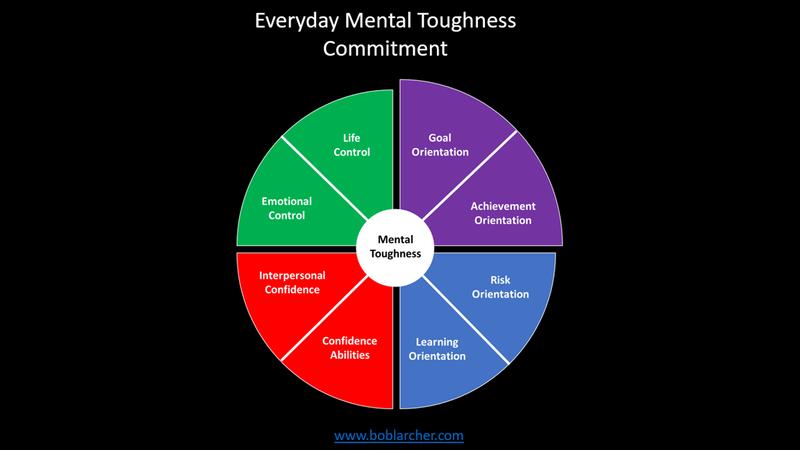Everyday Mental Toughness — Part 2: Commitment
Everyday Mental Toughness — Part 2: Commitment
This is the second of four short articles concentrating on how to develop each of the four Mental Toughness “sub-components”
I work with model developed by Professor Peter Clough and Doug Strycharczyk.
In their model the four sub-components are:
Control — life control and emotional control
Commitment — goal orientation and delivery orientation
Challenge — risk orientation and learning orientation
Confidence — interpersonal confidence and confidence in abilities
This article will look at some ideas for developing commitment
Commitment is about “stick-ability” and describes to what extent you will make and keep promises.
There are two components in Commitment — Goal Orientation and Achievement Orientation.
Goal orientation
Some hints for setting goals:
Hint 1 — Be specific
This is extremely important. It’s like creating a map. You have to know exactly where you start and exactly where you intend to end up. If you don’t have any idea where you’re going, you’re just going to wander around lost or maybe going in the wrong direction.
Make your goal as specific as possible. What exactly do you want? For instance, if your goal is to lose weight, what does that mean to you? What does weight loss represent? Is it greater self-confidence and higher self-esteem? Or, maybe you’ll be more comfortable with setting boundaries and sticking up for yourself?
Hint 2 — Make it measurable
You have to be able to measure your progress so you know when you arrive at your destination. Sticking with the example of losing weight, how much do you need to lose before you achieve your intended results? Three, five or ten kilos? Set a measurable amount.
Hint 3 — Keep it realistic
This trips up a lot of people up because we often want to achieve huge, unrealistic, feats in relatively short periods of time. So, start with something realistic; once you reach that goal, then you can go for something more challenging if you wish.
Hint 4 — Set a deadline
Having a due date is as important as knowing where you are going. If you don’t set a deadline, you’ll allow yourself to procrastinate, thereby never reaching your goal. You have to create an urgency to actually take action, so set a time frame for achieving your goal.
Hint 5 — Have rewards in place
Having rewards in place keeps you motivated. Celebrate your successes. If you reach a milestone, do something enjoyable. Just make sure it’s something that doesn’t hinder your future success.
Achievement orientation
Some hints for achieving more:
Hint 1 — Create mini-goals
Once you know your final goal, break it into manageable pieces by setting mini-goals so it isn’t quite so overwhelming. For example, if your goal is to run a marathon in six months, break it down and commit to a schedule where you start out walking and slowly add more & more running and more & more speed into your schedule.
In addition to reducing the feeling of overwhelm, when you reach mini-goals it gives you a feeling of success and achievement. This motivates you to keep going, which is an integral part of the process.
Hint 2 — set priorities
Identify for yourself what is important and what is urgent; use your “prime-time” (the moments when you have the most energy and the most focus) to achieving the urgent & important items; i.e. the priorities. Don’t fall into the trap of wasting your time on something urgent but at the end of the day very little importance.
Put the most important or hardest tasks first. It’s better to save the easier or more manageable tasks for the end of the day, when you’re more tired and less compelled to complete the hardest tasks. If you put off the hard tasks until the last minute, you’ll be dreading getting them done all day.
Hint 3 — make “to do” lists
Making a to-do list at the beginning of every day or week can make you feel more focused and motivated to continue your work. If you make a list of all the things you have to do, no matter how small, you will feel more accomplished when you check those items off your list and move on to the next task. This will also keep you focused on one task at a time.
Hint 4 — note what you have achieved
Listing your achievements lets you “see” what you have actually achieved, it avoids that somewhat unpleasant end of the day, “what have I actually achieved today”, feeling.
Developing your goal and achievement orientations will allow you to organise yourself, create focus and maximise your results.
Be the first to post a message!
